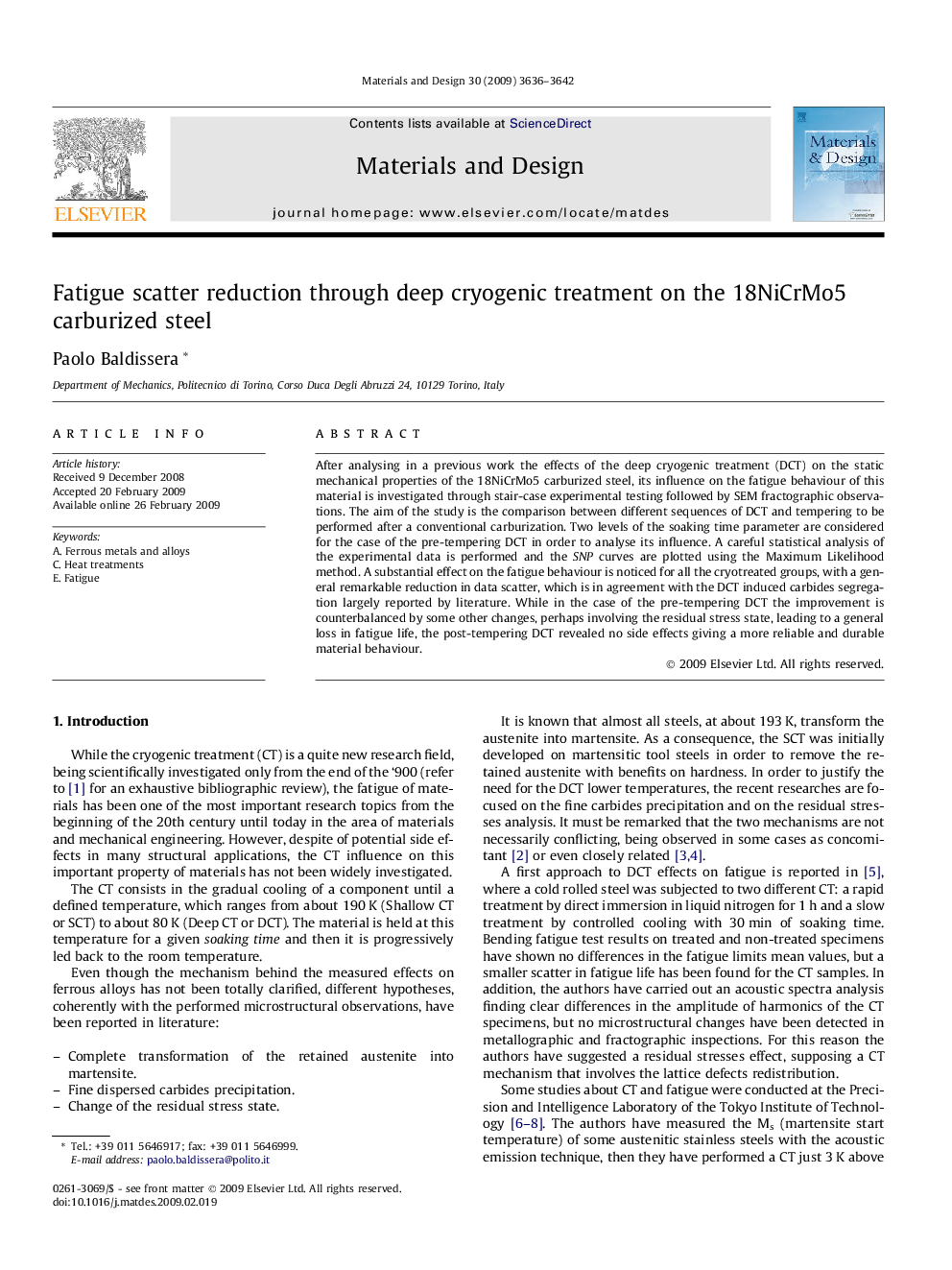| Article ID | Journal | Published Year | Pages | File Type |
|---|---|---|---|---|
| 832655 | Materials & Design (1980-2015) | 2009 | 7 Pages |
After analysing in a previous work the effects of the deep cryogenic treatment (DCT) on the static mechanical properties of the 18NiCrMo5 carburized steel, its influence on the fatigue behaviour of this material is investigated through stair-case experimental testing followed by SEM fractographic observations. The aim of the study is the comparison between different sequences of DCT and tempering to be performed after a conventional carburization. Two levels of the soaking time parameter are considered for the case of the pre-tempering DCT in order to analyse its influence. A careful statistical analysis of the experimental data is performed and the SNP curves are plotted using the Maximum Likelihood method. A substantial effect on the fatigue behaviour is noticed for all the cryotreated groups, with a general remarkable reduction in data scatter, which is in agreement with the DCT induced carbides segregation largely reported by literature. While in the case of the pre-tempering DCT the improvement is counterbalanced by some other changes, perhaps involving the residual stress state, leading to a general loss in fatigue life, the post-tempering DCT revealed no side effects giving a more reliable and durable material behaviour.
